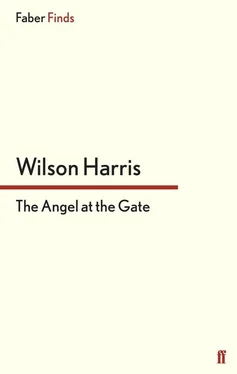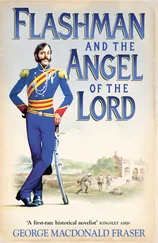Khublall was moved more deeply than he knew. He felt no inflation of consciousness whatsoever and this prompted him to recall an earlier question that had crossed his mind about the matter of relations between “bombast” and “music”…. Jackson studied the question like an involuntary lecturer in Human Paradise University. He tossed his bone at it. It caught the ambiguities of dress in which Khublall had been immersed, the ambiguity of skull, the ambiguity of the daughter that Sukey and he (Jackson) had conceived in the world of 1950. Space changed again into invisible class or audience that crowded Khublall’s mind.
“Bombast was honky-tonk music, honky-tonk sex, imperial sex — a basis for refinements of black power, Sukey used to say. The bombast of the old slave South ran in her blood like a fever…. Joplin had confessed his debt to honky-tonk crowd that ran in his blood too and he sought to convert it into individual compositions of subtlety and cunning. His rag subtlety was to open the dress of a new mood, the new jazz or distribution of talents, the new musical punt of an age. It was a denuded punt (rag) but possessed of imperial memory, imperial bombast, in subtle echoes, sounds that were to cap Count Basie, Duke Ellington, and others, in a black Honours List, a black House of Lords.
“Sounds that cut two ways, into a humanity possessed by good , possessed by evil. Possession by good was daemonic goods , possession by evil was not always the straightforward satanic trumpet it sounded in jazz. It could imply traces of early Christian communism that had been soured by Marx — so the propaganda went — into devious evil saints.
“Sukey’s roots were unmistakably good — refined bombast and daemonic property. Sex was daemonic property. Music and love were daemonic politics and property. She danced like an angel. She danced the tawdry rich-in-the-poor. She danced Joplin’s “The Entertainer”, his “Maple Leaf Rag”, his “Paragon”. She danced hot Count Basie.
“On our return from the club at nights she re-traced her steps with me not as if we were private souls but public bodies under the eye of an inquisitive, invisible crowd. She pursued a divided self playing ball with static inquisitor in static performer. This static emphasis was rag’s decorum of collective individual into which we were bound. Unfree. My consciousness of this unfreedom divided us. She was less — or not at all — conscious of it. I suffered for her. I was she… .” Jackson’s tone had changed. Supplicant clown addressing his furies. “She was male … and somewhere in that reversal a crack arose…. I conceived. The music of spaced rain ran up instead of down a ladder of flesh. I knew it was wrong, I would be torn to bits if I were not careful. The static tease of her body defined a strict boundary I had crossed…. I would need to defend that trespass against the ruthless crowd that peered at us…. Mother Diver’s shawled body of gravity hung over a million deaths, a million wounds, that branched from the Sacré Coeur close to our hotel. Scarcely five years had passed since the end of the war … What a moment for horse to conceive a daughter of man, Sukey as rider, I as clown…”
Daughter of man. Son of man. Khublall, the Hindu, pondered the Christian paradox. He felt powerfully grieved, uncannily sad, and sorry for Jackson. “When was she born,” he asked, “and when did you lose her?”
“She was thirty this year when she came to see me in London before going back. Mack’s granddaughter! Mack was a guy for women. Mack’s black granddaughter. Rumour has it — word from the furies — that his white grandson is called John.”
“John would be your daughter’s cousin across the divide of a generation.”
“That is so.”
“Did you remain in Paris?” Khublall sensed that Jackson was evading his earlier question, so he asked again, “When did you lose her?”
“I came to London in the summer of 1950. My wife followed.” He spoke the word “wife” in an absolutely colourless tone. That lack of colour was a gesture for the furies to read. “Our marriage was already on the rocks. When Josephine, my daughter, was born, Sukey returned to America. I cared for the baby, fed her, washed her nappies, spent virtually every penny on her that my father had left me but my god I adored her. I was able to afford a nanny to help out two days every week. Paid her five pounds. Good money in the 1950s. All went well until 1954 when I fell from a ladder, broke my leg.” His staccato voice also broke but he recovered and raced on, lame, yet Anancy swift. “I had to cable her father.” The words had come in such a rush that Khublall was just able to hear. It was as if Jackson were convinced that the woman he had slept with was the father of his child. Did he know what he was saying? Was it a slip of the tongue? Of course it was.
Josephine was his. She had issued from the beak in the horse. That beak had turned inwards. It had sliced, picked, pricked to create agonizingly new mental insides somewhere in the region beneath his heart and under the still vortex or unconscious memory of umbilical navel and cord. That beak was agency of furies. PICK. PICK. BEAK. SLICE. CUT. BEAK. “Oh my god I never knew how I stood it.” Seed of the daughter of man. For if there were a twentieth-century son of man (Mary Stella’s human, divine child), there needed to be also a twentieth-century daughter of man (Jackson’s animal, divine child).
“You cabled the old South,” said Khublall turning away from Jackson’s face.
“When I arose from bed they’d flown,” said Jackson, “Sukey and my Josephine. A fury had taken my daughter away. That’s the answer to your question. That’s how I lost her.”
“You did nothing to get her back, you let her go…?”
“I had had time as I lay in a hospital bed to see into myself.”
“See what?”
“Prey — prey of the furies.” He spoke now almost under his breath. “The beak was too much.”
“You needed a rest,” Khublall protested, “that was all. You’d spent nearly all of the money you had. Then when you fell you were concussed.”
“You’re a good man, Khublall, a stout friend.”
“Me? Good? No one’s good.”
“True,” said Jackson. He was actually responding to Khublall’s remark on the concussion he suffered when he fell. “Even today when I look back across the years, faces, buildings, streets, are a mist. My memory’s erratic.” His eyes brightened. “It was good to see her a week or two ago. But I know I have lost her. She was dancing in Paradise Park in the theatre there.”
“Why didn’t you go?”
“I couldn’t face it. Just couldn’t bear the crowded theatre or hall. The play was called Scissors and Chariot. Perhaps I should have gone. I may have seen…” The last words were uttered so softly that Khublall did not hear. They may have come of their own accord from another’s, a silent, throat up in the ceiling. Words of a blind family. The divisions were multifold and lay in part between “fictional human divine” and “fictional animal divine”. It was a division that occupied him now like another devious fury. A division that few could hope to bridge or cross except mutual angels and daemons with a capacity to dislodge the terror of the ignorant blind, the proud blind, the terror that one may learn to see through each and every blind in oneself into the arts of the genius of love within, beyond all spheres, limitations, polarizations one takes for granted as the absolute womb of the living or the absolute hierarchy of the dead.
It was early April. The newspapers were full of analyses of the attempted assassination of President Reagan and the danger of a Russian invasion of Poland. Mary made her way past the old St Paul’s schoolground and turned into the secluded backwater in Hammersmith where Father Marsden lived. It was ten-thirty, a sharp, cool morning. A car drove past and she glimpsed someone with what looked like a bunch of tulips in her hand. It reminded her of the subtle, majestic carpet in the Angel Inn study.
Читать дальше












